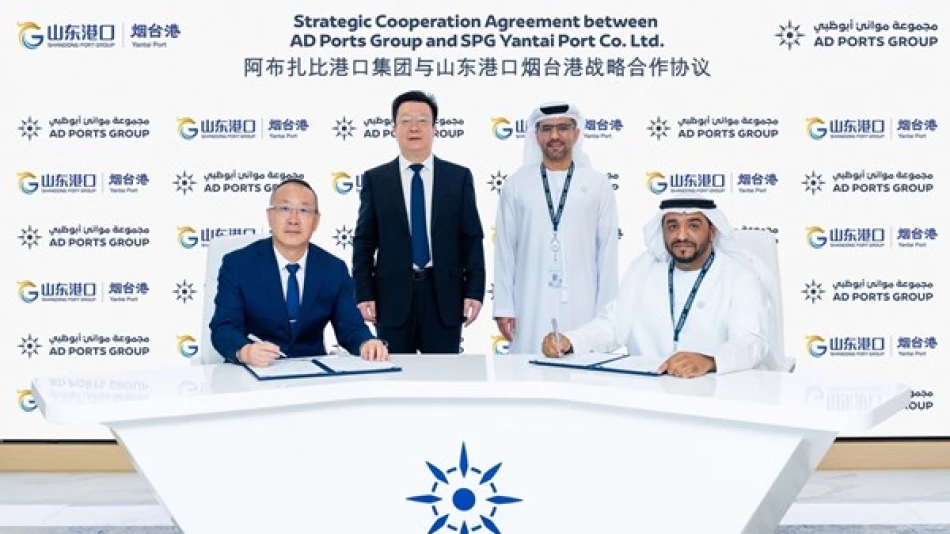
Abu Dhabi Ports and China's Shandong Ports Partner to Develop Eco-Friendly Automotive Manufacturing Hubs
Abu Dhabi Ports and China's state-owned Shandong Port Group signed a preliminary strategic partnership to build eco-friendly car business hubs across Asia, the Middle East, and North Africa. The deal aims to create an integrated logistics corridor for both new and used vehicles, tapping into China's position as the world's largest auto market and Abu Dhabi's growing role as a regional trade center.
The partnership will connect Yantai Port's green automotive circular economy zone in China's Shandong province with Abu Dhabi Ports' car terminals in the UAE and other key countries. Both sides plan to build modern, AI-powered car centers within their ports to boost operational efficiency and create competitive advantages in automotive logistics.
This comes as Chinese car brands expand globally and China's used car exports surge. The UAE has become the largest overseas market for Chinese used car exports, making its strategic location particularly valuable for this partnership.
The agreement also explores sustainable energy initiatives, using Yantai Port's advanced energy infrastructure alongside Abu Dhabi's strategic position in the Middle East's thriving energy sector. Both ports will work together to develop integrated supply chains for vehicles while supporting the circular economy.
Captain Ammar Al Shaiba, CEO of Maritime and Shipping at Abu Dhabi Ports, said the deal reflects a shared vision to strengthen trade and logistics links between China, the UAE, and global markets. The partnership builds on existing ties between the two port groups.
For the UAE, this partnership supports economic diversification efforts by establishing Abu Dhabi as a major automotive hub. The deal creates sustainable value for stakeholders across Asia, the Middle East, and North Africa while capitalizing on the complementary strengths of both port networks in operations, logistics services, and market channels.
The timing is significant as Chinese automotive exports continue growing rapidly, creating new opportunities for trade routes between Asia and emerging markets in the Middle East and Africa. Both port groups aim to capture more of this expanding trade flow through their integrated approach.
Most Viewed News

 Layla Al Mansoori
Layla Al Mansoori






